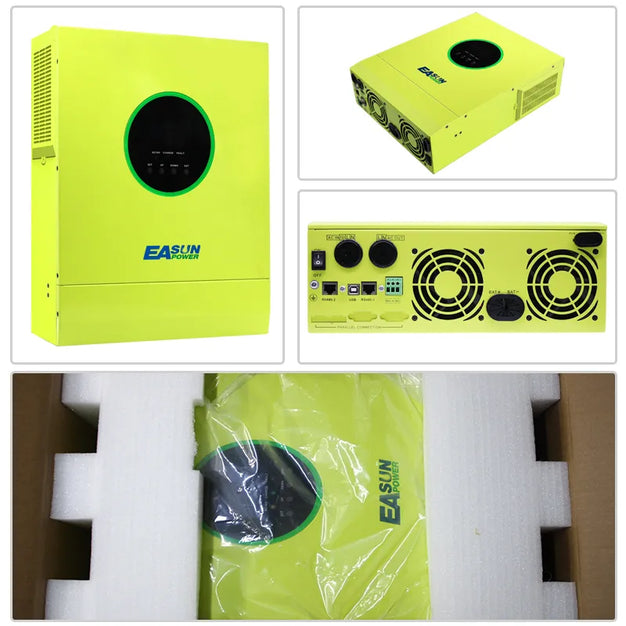Unveiling the Power of Easun's Off-Grid Solar Solutions: Discover the Future of Sustainable Energy!
In an era where sustainable energy solutions are more crucial than ever, off-grid solar systems have emerged as a beacon of hope for energy independence and environmental stewardship. These systems allow individuals and communities to harness the power of the sun without relying on conventional utility grids. Easun Power stands out as a provider of innovative off-grid solar solutions, committed to transforming how we think about energy. In this article, we will delve into the specifications, benefits, and diverse applications of Easun's off-grid solar solutions, illuminating the path toward a greener future.

Understanding Off-Grid Solar Solutions
Off-grid solar solutions refer to photovoltaic systems that operate independently from the main electricity grid. Unlike grid-tied systems, which rely on external electrical sources, off-grid systems generate and store energy for self-sufficiency. The fundamental components of an off-grid system include solar panels, which convert sunlight into electricity; batteries, which store excess energy for use when sunlight is insufficient; and inverters, which convert direct current (DC) from the panels and batteries into alternating current (AC) for household use. This combination enables users to maintain power even in remote locations where grid access is limited or non-existent, making off-grid systems an attractive choice for many.
Specifications of Easun Power’s Off-Grid Solar Solutions
Easun Power’s off-grid solar solutions are designed with cutting-edge technology to meet various energy needs effectively. Their systems typically include high-efficiency solar panels that maximize sunlight capture, ensuring optimal energy generation even in less than ideal conditions. The battery capacity in these systems varies, allowing users to select configurations that meet their specific requirements, from small-scale residential uses to larger applications. Additionally, Easun Power offers a range of inverter options to accommodate different power needs and preferences. Innovative features such as smart monitoring systems enable users to track energy production and consumption in real-time, ensuring efficient energy management. These specifications collectively contribute to a reliable and efficient off-grid energy solution.
Benefits of Using Off-Grid Solar Solutions
The advantages of off-grid solar solutions are numerous and compelling. First and foremost, they provide energy independence, allowing users to generate their own electricity without reliance on traditional utility sources. This independence translates to long-term cost savings, as users can significantly reduce or eliminate their electric bills. Furthermore, off-grid solar systems have a reduced environmental impact compared to fossil fuel-generated electricity, contributing to a decrease in greenhouse gas emissions. Reliability is another key benefit, especially for those in remote areas. I remember a friend who built a cabin in the mountains; they installed an off-grid solar system and were thrilled to find they could enjoy modern conveniences without being tied to the grid. Their experience highlighted the practicality and reliability of off-grid solutions, even in the most challenging environments.
Application Scenarios for Off-Grid Solar Solutions
Off-grid solar solutions can be implemented in various scenarios, showcasing their versatility and adaptability. Residential homes in rural areas often rely on off-grid systems to achieve energy self-sufficiency. Similarly, vacation cabins and tiny homes benefit from off-grid setups, allowing for sustainable living in remote locations. Additionally, businesses operating in isolated work sites, such as construction or mining operations, can harness off-grid solar systems to power their activities efficiently. Moreover, during disaster relief efforts, off-grid solar solutions provide essential electricity to communities that have lost access to traditional power sources. For instance, during a recent hurricane, a local community used portable off-grid solar units to power shelters, demonstrating the technology's crucial role in emergency situations.
Path to Sustainable Energy Independence
The significance of off-grid solar solutions cannot be overstated, especially in the context of sustainable energy development. Through the specifications we’ve explored, the myriad benefits, and the wide range of applications, it is clear that these systems offer a viable path toward energy independence and environmental responsibility. As we move forward into a future increasingly defined by energy challenges, considering off-grid solar solutions may not just be an option but a necessity for many individuals and communities seeking sustainable energy alternatives. Embracing these solutions can lead to a more resilient and eco-friendly future.














